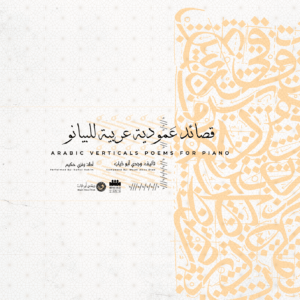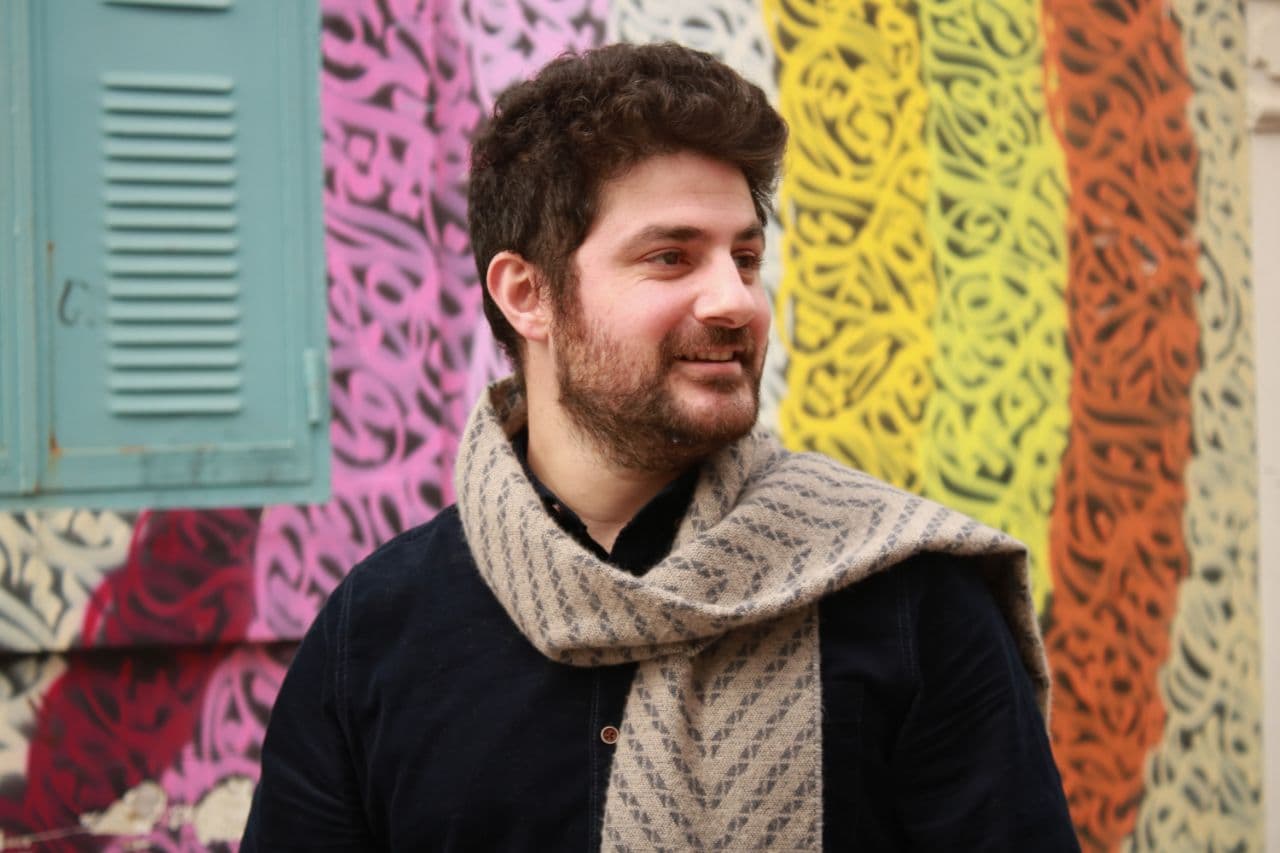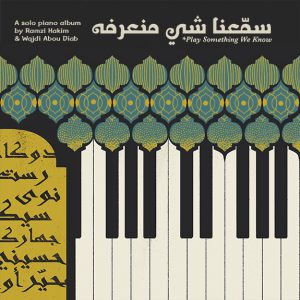
ARABIC VERTICAL POEMS
FOR PIANO
Wajdi Abou Diab (Composer)
Ramzi Hakim (Pianist, Sound engineer)
Bachar Hijazi (Artwork, design)
16 solo piano tracks
44 min Length
Released on 26 Jan 2024
Label Distrokid
Supported by AFAC

About the Album
“Arabic Piano Vertical Poems” is a project that links measured Arabic poetry with modern contemporary Arabic music, to set a link between language and music, literature and abstraction, past and present, and to reflect an echo of the ancient musical rhythm in the classical Arabic language, as well as to develop the Arabic music through elements from the classical Arabic language and the rhythms of its poetry.
A project that blends the richness of the old Arabic language and the rhythm of its poems, with the music of the modern age and its powerful tools of expression.
Selected 16 poems from the Arab literary heritage, written upon the sixteen different forms of “Al Khalil Ben Ahmad Al Farahidi” by great Arab poets, such as Al-Mutanabi, Uday bin Zaid, Antara bin Shaddad, Ibn Al-Roumi, Al-Buhtari, and others… was transformed to a musical rhythmic structure by extracting the rhythm from their forms as they were used initially in the poems, taking into account their skis and their ills and all the modifications that occur to the form, which reflect the poetic music without distortion, relying on practical literary usages away from theories and theorems.
This results in a rhythm that mimics the origins of the recitation that reflects the life of poets in those periods, and that takes into account the spontaneity of the versification, the smoothness of the forms, their connection with the poet’s abilities in rhetoric and recitation, and their interaction with his emotions, feelings, and sincerity of meanings in his poems. Every poem is matched with a selected melodic presentation of the Maqamat as Mikhael Mashaka mentioned in his book “Al Rissala Al Shahabiya Fi SSina’a Lmoussiqiyya”, which was originally written in Arabic, as a paragraph, and translated by the composer into musical phrases.
This work introduces the piano as an Arabic instrument in terms of performance, techniques, and musical language, and searches for a new identity for this instrument, after adapting it to play the Arabic maqams and rhythms derived from classical Arabic music in its unique way.

About the Composer
Wajdi Abou Diab, composer, musicologist, and music educator, draws inspiration from his dual cultural background in Arabic Levantine and Western classical music.
born in Lebanon in 1991 and graduated from the Lebanese National Higher Conservatory of Music (LNHCM) in Piano and Music Composition, and currently pursuing his Master’s degree in “Musicology of tradition” at Antonin University.
The international music community has recognized him through numerous accolades from several competitions, as well as receiving honorable mentions and being selected for various calls for scores. Wajdi’s publishings include three music books and many articles and research papers in the domain of Middle Eastern music theory and ethnomusicology of the Middle Eastern music heritage.
His composer’s residencies include residencies at Cite Musicale De Metz and Cite Musicale De L’abbaye Aux Dames De Sainte.

SAMME’NA SHI MNA’ERFOU
16 tracks for solo piano
The album is a collection of the most famous Arabic songs, arranged for piano solo, performed, and recorded by pianist Ramzi Hakim.
This work comes as an attempt to bring together the various traditional Arabic musical dialects and present them in a unified musical language, to build a bridge of communication between European classical music and Arab music, and to expose the audience to classical music in our Arab heritage.
This album plays an important role in preserving a group of Arabic melodies that occupied a prominent place for a long period of time in our social life and our musical memory.

ARABIC VERTICAL POEMS FOR PIANO
16 tracks for solo piano
Arabic Vertical Poems is a album that links measured Arabic poetry with modern contemporary Arabic music, to set a link between language and music, literature and abstraction, past and present, and to reflect an echo of the ancient musical rhythm in the classical Arabic language, as well as to develop the Arabic music through elements from the classical Arabic language and the rhythms of its poetry.
A project that blends the richness of the old Arabic language and the rhythm of its poems, with the music of the modern age and its powerful tools of expression.

